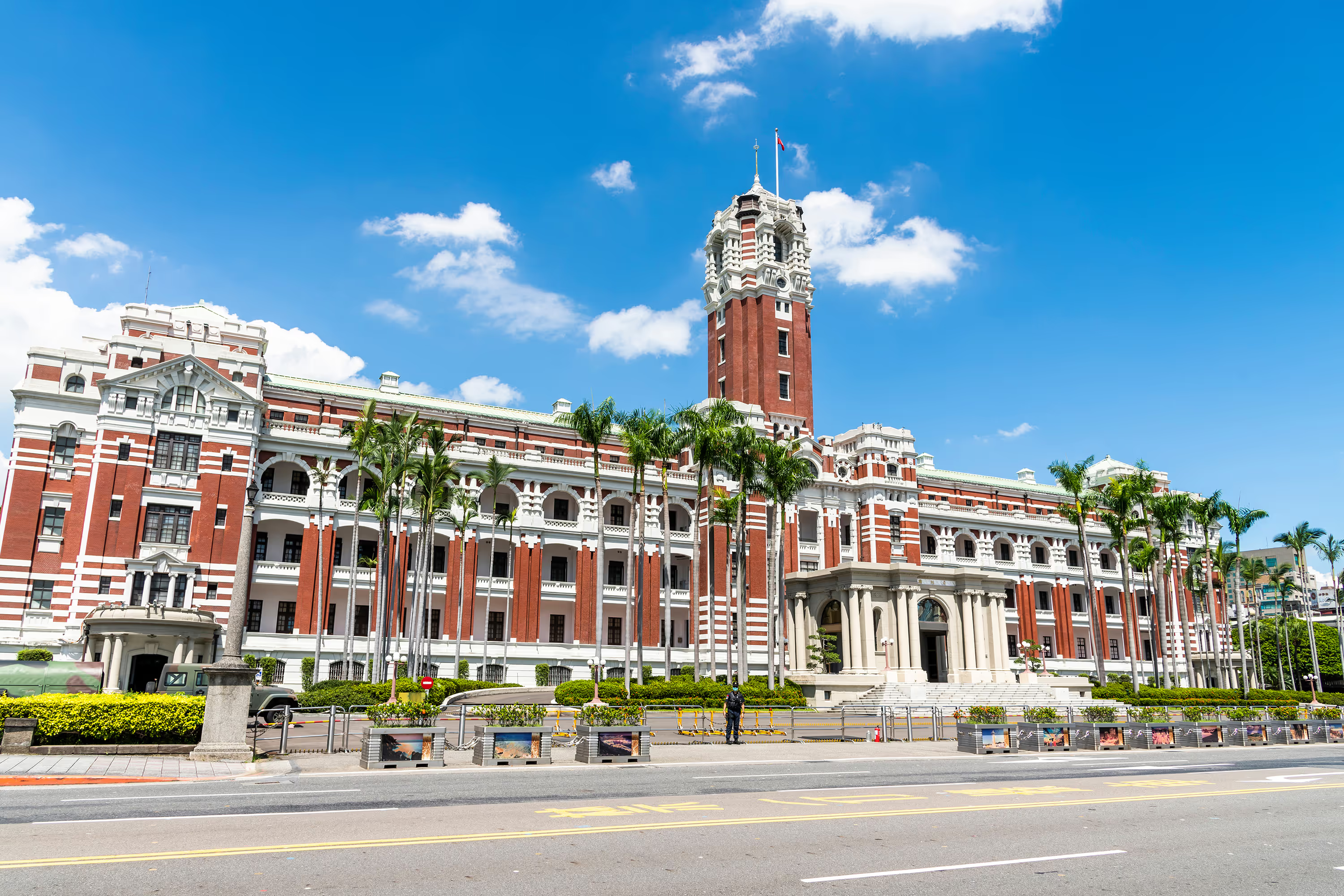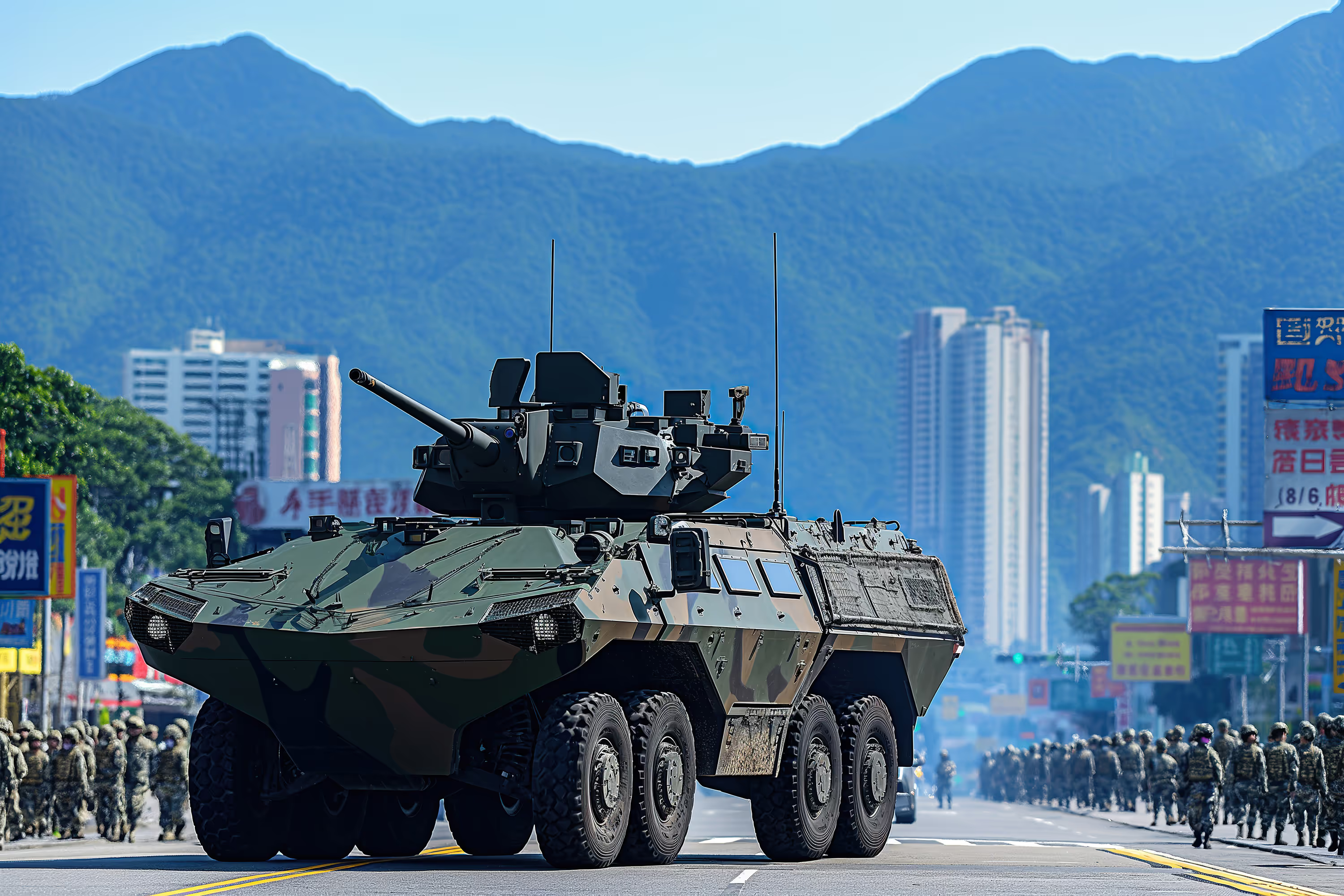Preparing for conflict in the Taiwan Strait extends beyond military planning. In his inaugural address, current President Lai Ching-te outlined the ‘Four Pillars of Peace’, which is a multipronged strategy to strengthen deterrence, manage tensions and enhance national resilience. Building on his predecessor’s foundation, this framework offers a comprehensive guide to understanding Taiwan’s current security approach.
Increase defence budget and modernise the military.
Produce and procure asymmetric and advanced defence capabilities.
Build civil defence resilience including through the Whole-of-Society Defense Resilience Committee.
Cross-sector coordination (defence, energy, infrastructure, health care) remains complex.
Chinese military activity is increasing in frequency and scale.
A divided legislature continues to block defence funding.
Diversify trade and investment away from China (31.7% of exports still go to China / Hong Kong).
Seek new trade agreements and deepen ties with other countries.
Build economic resilience.
Taiwan remains vulnerable to economic coercion by Beijing, particularly in its tech industry.
Export shift requires long-term structural adjustments and investment in new markets.
Expand cooperation with democratic nations.
Strengthen critical supply chains, such as for semiconductors.
Step up exchanges on national defence and security.
China continues to isolate Taiwan, including by pressuring Taiwan’s 12 remaining formal allies.
Taiwan’s ambiguous international legal status constrains its ability to form deeper bilateral partnerships.
Taiwan is also barred from many multilateral forums, such as the World Health Organization, in which state recognition isn’t a prerequisite for admission.
Advocate peace and dialogue with Beijing on the conditions of parity and dignity.
Stress mutual respect and no preconditions.
Reject political and military intimidation.
China sees Lai as a separatist, accusing him of escalating tensions.
Beijing views the DPP as shaping Taiwanese opinion towards permanent separation.
Striking the right balance
President Lai Ching-te must walk a political and strategic tightrope, balancing external threats and internal divisions. His efforts to prepare for potential conflict with China, while seeking to maintain democratic legitimacy and public trust, involve managing four major forces.
China
The dilemma: Lai must appear strong without giving Beijing an excuse to escalate. For example, in March 2025, Lai outlined 17 countermeasures to China’s growing infiltration.
Key challenges: China responded forcefully to those efforts, launching a large-scale military exercise, Strait Thunder 2025A, shortly after Lai’s speech. Beijing chooses the timing and means of responding, which is something Lai can’t control.
The balancing act: Lai must appear resolute without being cast as a provocateur, avoiding unnecessary moves that China could choose to justify further escalation.
Domestic politics
The dilemma: Lai governs with a minority in a parliament dominated by the KMT and the Taiwan People’s Party (the third biggest political party in Taiwan). Both parties are generally more conciliatory towards China.
Key challenges: In early 2025, the opposition passed defence budget cuts that undermined Lai’s plans to strengthen Taiwan’s military. Additional reductions have targeted civil-society programs, cybersecurity and the coastguard.
The balancing act: The DPP must advance Taiwan’s national defence while navigating a fragmented and often obstructive legislature and an increasingly polarised domestic political environment.
The military:
The dilemma: Taiwan’s military retains a legacy of KMT-era hierarchy and doctrine and is often sceptical about reforms led by the DPP.
Key challenges: Lai is pushing for rapid transformation, but elements within the military continue to favour conventional platforms and centralised command structures.
The balancing act: Lai needs to modernise the military while managing internal resistance and preserving cohesion.
Civil Society
The dilemma: Public support is essential, but fragile. Economic pressures and civil-liberties concerns are shaping perceptions of Lai’s policies.
Key challenges: Rising housing prices and stagnant wages have fuelled public dissatisfaction, undermining backing for key strategic initiatives. Meanwhile, proposals such as military tribunals to combat espionage have faced pushback from critics who view them as a step back towards authoritarianism.
The balancing act: The DPP must safeguard Taiwan while preserving the democratic freedoms and social stability that it aims to protect.


